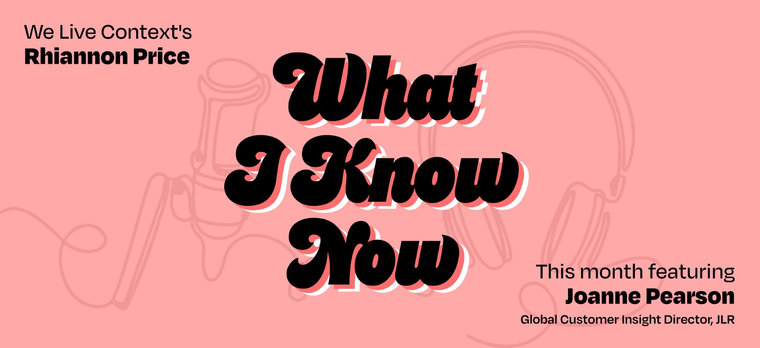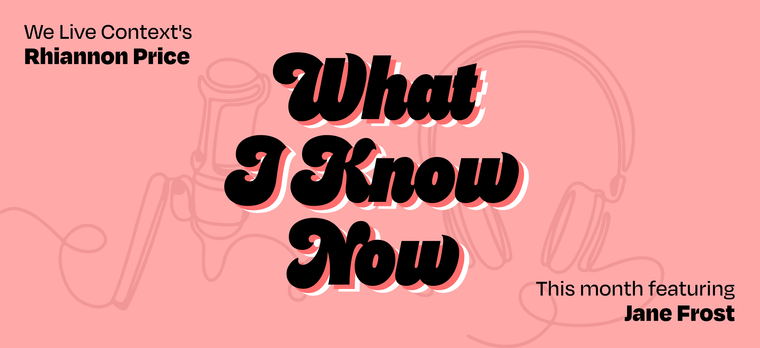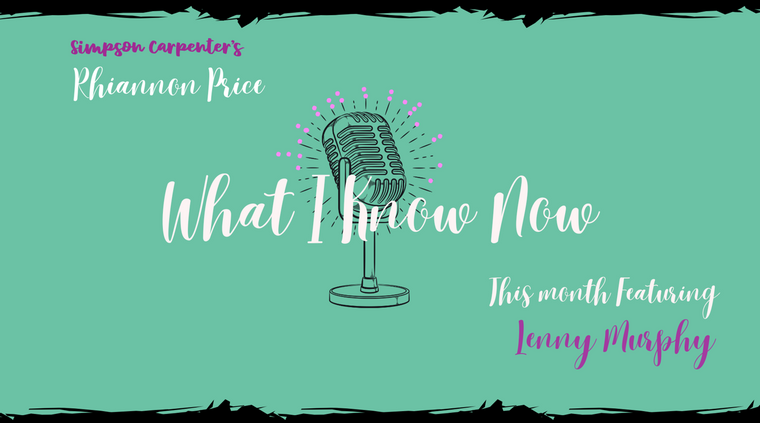What I Know Now... Dan Foreman
Each month, We Live Context’s Rhiannon Price asks some familiar faces in the MRX world what they have learned about themselves and the industry on their journey so far.
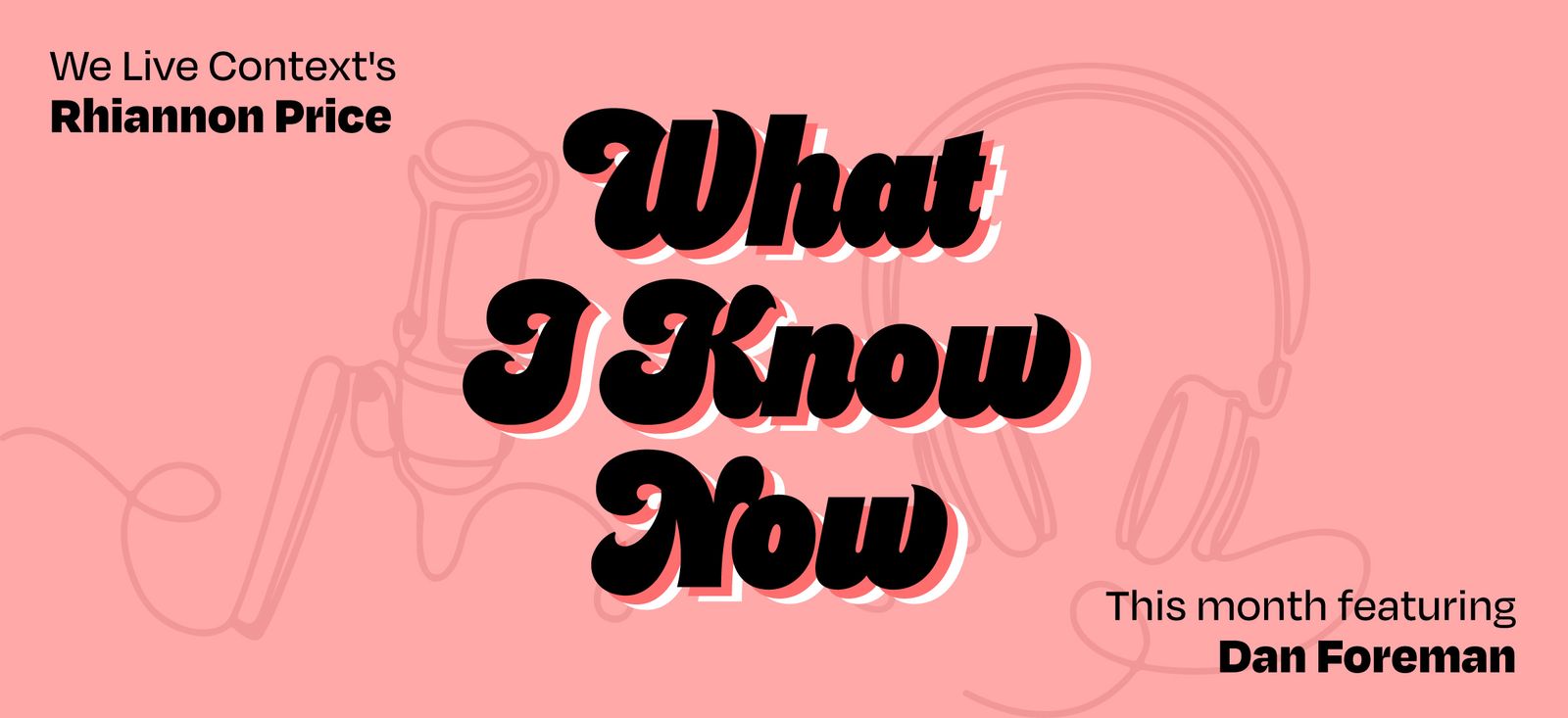
I’m lucky enough to have interviewed some super interesting people throughout my career. People from all over the world. People from all types of professions. People from many different backgrounds. I’ve spent days in their company taking it all in. I’ve seen them laugh, cry, and get angry about the twists and turns their path has taken them on. Be it a South African entrepreneur in Soweto or a Saudi millionaire, I have learned a lot about how people get to where they are going and their advice for life. But until recently, I have never really turned the lens inward. I have never asked my peers or the people I most admire in market research what their advice for life is. How they got to where they are. How they see things. But when I did, I found it wonderfully inspiring and not only a little bit transformative.
And so, I thought it was about time that we celebrated the wisdom of our MRX crowd and let their stories inspire us.
This month I spoke to Dan Foreman, former (youngest ever) ESOMAR President, industry change maker, investor, and all round nice guy who talked to me candidly about his fear of failure, the importance of showing vulnerability and his extraordinary memory!
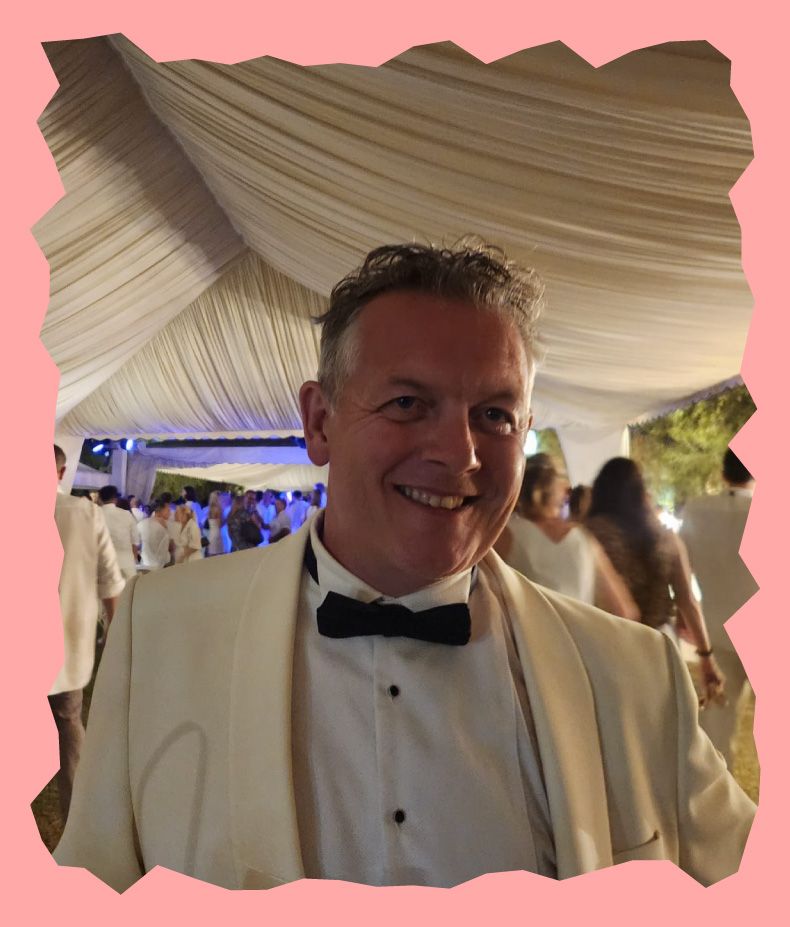
Let’s start like we mean to go on with the “big one at one”…Are you where you thought you would be at this point?
Of course not! I had no expectation that my life would turn out as incredible as it is now.
At the beginning I figured I'd be a psychologist or something, but even when I started working in market research, I didn't anticipate I would be in a position where I could have as much influence as I have and positively impact so many people's careers. And invent some things and move an industry forward a little bit. It's absolutely phenomenal.
When you list it all off like that, how does that make you feel? Because that’s pretty cool.
Yeah, I think that's how it makes me feel. It’s pretty cool. And it's weird. I have a complex relationship with pride. But in a private moment, I can acknowledge I feel really proud of some of the positive things I've been able to do. But I mean, that's also something I've learned over time – to just go with what seems exciting and then when you connect the dots backwards, you can see ‘wow, this is a real leap from where I was and what I was thinking about’.
So help me understand the journey then. How did you get into all of this in the first place?
I was studying psychology at university and I found it really easy. So, after the first semester, I persuaded the maths faculty I could do two degrees at the same time. During my second year of psychology we had ten weeks of career lectures all related to psychology, and on the last week they crammed three jobs into one hour. And one was market research which really inspired me. Then when I was graduating, I applied for all the milk round positions I could see in market research and got offered all the jobs I applied for, which was nice. But I went for the one which seemed to have the longest ladder and the most money, which was Research International, and joined their graduate training program.
They had 25 people there, so it was like an extension of university, but a great grounding in the foundations of quant and qual. I then got fast tracked with an early promotion which was lovely. But I found so much of what I was learning really weird. Like the crazy questionnaires we were doing or the absurdity of getting people behind a one-way mirror and giving so much power to these clients behind the glass - who you realize are mostly drinking wine and not really paying attention. And I was scratching my head thinking ‘is this really what market research is?’. It just all seemed a little bit inadequate and not fit for purpose.
So I decided to leave market research and go into marketing, with roles at Added Value, Kimberly Clark and Incite - including a secondment to McKinsey for two years. So I'm now eight years into my career and I've got a bit of market research, a bit of marketing and a bit of client side experience and now management consulting.
Then I went into advertising planning for three years before getting poached to work for Focus Vision. With them I went through the journey from family owned business to private equity ownership - with a really big valuation - at the beginning of the dot com boom. And that was my last paid position.
I joined Focus Vision when I was just under 30 and left at 32 after this PE thing. I didn't make a lot of money, but enough to pay off a mortgage and stuff. Then I was left wondering ‘what do I do now?’. Eventually I became an investor and advisor and now have a pretty diverse range of companies I'm involved with, increasingly outside of research but also in research, because that's my sweet spot.
It’s incredible hearing your journey, all of it must have taken some confidence. What’s pulling you in that direction?
For me, the biggest driver isn’t about the pull, it's more push and it's a massive fear of failure. I had a very formative experience when I was nine years old. My dad had a small engineering firm with a friend in the 1980s, and they basically got overextended and ended up going bankrupt. At the time there was a change of government with housing recessions and stuff. So there were really punitive consequences. We actually lost our house. And he wasn't allowed to have a bank account for 20 years because he couldn't be trusted with money.
I went from having a stable life, to having to move to a different part of the same town with a different school and different friends. Then because we were in welfare housing we also got moved around a lot. From the ages of nine to eighteen I lived in a different house almost every year and had to rely on all state benefits. So as a nine year old going from having a television to watching someone come in your house and take away your television and your sofa and your fish tank and all these things.
All that manifested in a hugely ambitious and extremely paranoid drive to ensure that didn't ever happen to my family. I noticed it particularly when I was building a portfolio that what I'm really doing is trying not to be dependent upon a single income source.
And then of course, like most things related to success, you get a huge adrenaline buzz. I found there are some real highs in somebody saying, ‘wow, your company's worth 20 million or 100 million or whatever’. That's really exciting, but also you see people making a lot of money and they can turn around and say ‘I've been able to put down a deposit on a house in London or I've paid off my mortgage or we can have a nice holiday’. Whatever it might be, just to see that impact on other people's lives is such a brilliant feeling.
And I've added it up. I track the number of opportunities that have been created for people and when you reflect and think ‘gosh, three years ago it was two people and now it's 40 people or 100 or 300’, that gives me an incredible thrill.
I'm sorry that all happened to you at the age of nine, and I can really see how that would’ve affected your approach to life. Talking to other people that I've interviewed, it’s like failure is a prerequisite to success. So it's quite interesting for me to hear that there was a very conscious decision to completely avoid failure. Or is there an element of failure that you're more comfortable with?
Good question. I am comfortable with the feeling of discomfort. I've really learned to step into that over the years and I do thrive on it, which pushes the risk a little bit. But honestly, for me, it's just a really powerful motivator. If someone was to ask what my biggest failure is I’d struggle as I'm really good at finding the positive and taking the learning, and then avoiding it for the next time. I would never categorize it as a failure.
That’s interesting, you don't even name it. Let’s talk about achievement then. You were 32 when the exit happened at Focus Vision, you were the youngest ever ESOMAR president and then you were awarded The American Marketing Association (AMA) Foundation's ‘4 Under 40 Emerging Leaders Award’ which recognizes young marketing leaders who have made significant contributions to the field and have the potential to shape its future. That’s quite a stand out career journey! Let’s start with throwing your hat in the ring to be president of ESOMAR…
Well, I got very early exposure to it when I was a grad trainee at Research International as we did a project that was picked up by the ESOMAR community and we ended up presenting it at Congress in Istanbul in 1996. So that gave me a glimpse of “wow, all the company chairs and chief executives are at this crazy event!”. And I'm only 22, so this is really exciting. So when the opportunity to participate more in ESOMAR came up when I was at Focus Vision, I did. After about ten years, I decided to step onto the Council. I went to one of the UK events, met David Smith, who was the UK rep and asked him “do you ever plan on stepping down? Because I'd quite like to be the UK rep!” and he said “no way, I've been doing it for years.” So then I thought, ‘how else do I get in?’ and I learnt the Council elections were coming up. I talked to Finn Raben who was the Director General at the time, and he massively discouraged me as he was worried I was too young and there would be others who had 20-30 years more experience. And you can print this as we have chatted and laughed about it since, but I thought ‘well **** you, I’m gonna apply!’
Then once on the Council, I thought this is really dysfunctional, if I'm going to continue I've got to sit in the driving seat. So then I stepped into the President role – after a similar sort of push back.
Let’s shift topic a little. Are you someone who deals in regret? Has there been a point in your career where you've regretted a decision?
Honestly, no, because I do take the learning out of negative experiences. Of course, there have been a bunch of things that at the time I’ve thought ‘why did I do that?’. But honestly, I wouldn't change a thing. There's a great quote from Alice in Wonderland- the Queen says “It's a poor sort of memory that only works backwards”, so I really live by that.
And in fact, I got so interested in memory as a teenager I did one of these online memory courses because I wanted to be able to memorize a pack of cards and things. Now I'm older, it's incredibly helpful for networking events. I'll go to an ESOMAR event and there are 1000 people there and I feel like I know maybe 900 of them. And not just know them, but I remember things about them.
Wow. Good skill! So talk to me about mentors, who are people you have turned to for advice?
I realized there have been so many mentors, professionally, I have met along the way. And maybe it relates to the memory thing as there are also very specific things they said that became really important to me.
But there are also so many inspirations who are people that I've never met. For example there have been times when I've had an imaginary conversation with Mother Teresa or Mr Miyagi around what they would do in my situation. What would Micky Mouse do? Or what would Frederick Chopin do?
I love it. So what would Mickey Mouse do?
He's really excellent and what I've realized is he always helps me think about me, or my family and other people's families - so ethical CSR and also thinking about how investing in this company will positively impact my children and my grandchildren. And he always ensures there's a lot of laughter and fun.
Do you have any rituals that you feel contribute to your success?
I do this thing every five years, but it originally happened by accident. One day I wrote a five year plan and I used it as a bookmark. But then I finished the book and I put the book on my bookshelf and totally forgot I’d even written it. I happened to pick this book up a little bit over five years later and it was a fascinating exercise to see how I'd overachieved on my five year plan. I'm on the fourth of those. I fold it away and I'm not allowed to look at it.
Now you’ve obviously been very successful and a lot of time and emotional investment goes into what you've done. How do you juggle that with family life and everything else? Because I don’t think that gets asked of men as much as it should.
Yeah, it's tough. For a big chunk of that I have been a single parent. I am extremely disciplined and I commit to what I am doing. During the pandemic, I had to embrace my own vulnerability and say to colleagues “look, this is going to be a bit sh*t for a few months because of these things happening in my personal life”. And I'm normally really private, but the reception I got was so positive that I thought I wish I'd shared more earlier in my career. Not a regret, but if I'd have known then what I know now then yes, I would have just been more open, but instead I was trying to be all professional.
Thanks so much for sharing that, I think appreciating we are all dealing with a life outside of work is so important!
And finally, to end the conversation, some quick fire recommendations.
If you read just one book?
“Seven habits of highly effective people” by Stephen R Covey. When I first read it, so much of it seemed to explain my approach to life.
If you listen to just one podcast?
“Stranded technologies”. It’s really good at finding either obsolete or ignored technologies and really zooming in on them.
If you follow just one person on social media?
George Mac. He has a really irreverent bend on reality that I can relate to. And he'll talk about different hacks and practices.
And finally, if you remember just one thing?
Well, this is a challenge for me because unfortunately I remember everything, but it would be - and it's also a great song- “It ain't what you do, it's the way that you do it”.
